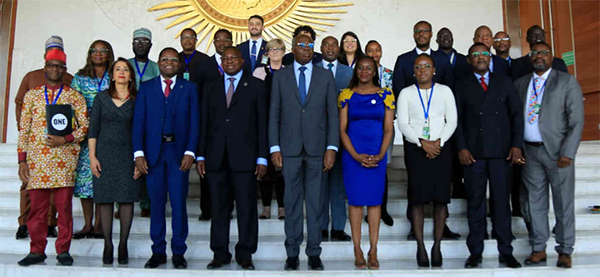EXPERTS examining an ongoing study of key factors underlying development in Africa have emphasized the need for the continent to sustain annual growth rates of at least 7-10 percent over the next 40 years if Agenda 2063 is to be met.
The session, organized by the Africa Union Commission and the African Development Bank, was held on the sidelines of the 36th African Union Summit in Addis Ababa. The study on Key Actions to Drive Inclusive Growth and Sustainable Development in Africa, was commissioned by the Chairperson of the African Union Commission, Moussa Faki Mahamat and African Development Bank President, Dr. Akinwumi Adesina.
The study will undertake a deep analysis of Africa’s growth trajectory and identify key actions for Africa to double its growth rates from the current level for the next 40 years. Agenda 2063, set by the African Union, is Africa’s roadmap and master plan for transforming the continent into the global powerhouse of the future.
Acting Chief Economist and Vice President of the African Development Bank, Prof Kevin Urama, outlined the rationale for the study: “Africa’s current growth performance is insufficient to eradicate poverty and achieve the Sustainable Development Goals (SDGs) and Agenda 2063 as encapsulated in the African Development Bank’s ‘High 5’ priorities.
Columbia University professor and economist Jeffrey Sachs noted that increasing and sustaining investment from the current level of 20% of GDP to 40% would require “a deep quantitative exercise and a development strategy promoted by strategists. “This is Africa’s challenge,” he stressed, adding that infrastructure and human capital development would be critical.
Hanan Morsy, Deputy Executive Secretary and Chief Economist at the United Nations Economic Commission for Africa, said Africa needed macro-economic stability. “The continent must scale up the production value chain, not just export raw materials,” she observed.
Other speakers listed additional hurdles the continent faces, chief among them is the cost of capital to achieve the infrastructure expenditure required for growth, the bulging youth population, and the need to fast-track technology innovation and skills.
Here are a few key goals of the planned study:
- Identifying the enablers and barriers to inclusive growth, sustainable development, and structural transformation in Africa, generally, and across country classifications based on specific characteristics such as income levels
- Formulate remedies to identify binding constraints
- Explore the synergies and complementarities of existing policies and initiatives for all African countries to implement for inclusive growth and sustained development
- Propose recommendations that will serve as a continental strategy for inclusive growth and sustainable development in Africa
- Propose key actions required at national, regional, and continental scales by relevant stakeholders to support Africa’s transition to inclusive and sustainable development pathways to achieve the SDGs, Agenda 2063, and the Hi-5s on the continent.
